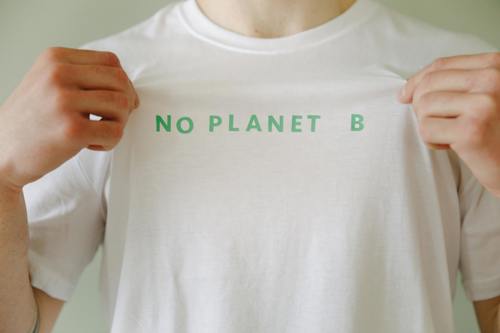Every product we consume has a story. The clothes we wear, the food we eat, the technology we use—each item is the result of a vast and often invisible supply chain. But if we were to trace these products back to their origins, we might find something unsettling: child labor in textile factories, workers in unsafe conditions, farmers struggling under exploitative systems. The question we must ask ourselves is this: Does our consumption come at the cost of someone else’s suffering?
The Hidden Cost of Convenience
In an era of fast fashion, instant delivery, and disposable goods, consumption has never been easier—or more disconnected. We see price tags, but we don’t see the cost paid by those who make our products. We see abundance, but not the exploitation behind it.
The fashion industry, for example, is notorious for its reliance on sweatshops in countries like Bangladesh, Cambodia, and China, where workers earn far below a living wage and often endure harsh, unsafe conditions. The cobalt in our smartphones is mined in the Democratic Republic of the Congo, often by children working in life-threatening environments. The chocolate we eat may come from cacao farms where child labor is common.
The philosopher Jean-Jacques Rousseau wrote:
"Man is born free, and everywhere he is in chains."
Today, many of those chains are economic. They are the invisible bonds that keep millions trapped in cycles of exploitation, all so that the rest of the world can consume more cheaply and conveniently.
Ignorance Is Not an Excuse
It is tempting to believe that individual choices do not make a difference. After all, the global economy is complex, and avoiding unethical consumption entirely can feel overwhelming. But history shows us that consumer awareness does create change. The abolition of child labor in many Western nations, improved factory conditions, and fair trade movements all gained traction because people refused to turn a blind eye.
Mahatma Gandhi famously advocated for ethical consumption, urging people to consider not just what they buy, but who they empower through their purchases:
"There is no beauty in the finest cloth if it makes hunger and unhappiness."
What Can We Do?
Ethical consumption is not about perfection—it is about progress. While no one can make every purchase 100% ethical, we can all make more informed choices that contribute to a fairer world. Here’s how:
Ask Where It Comes From – Research brands and supply chains. Companies with ethical practices are often transparent about their sourcing.
Support Fair Trade and Ethical Brands – Look for certifications like Fair Trade, B Corp, or brands that prioritize fair wages and sustainability.
Buy Less, Buy Better – Fast fashion thrives on overconsumption. Investing in quality over quantity reduces demand for exploitative labor.
Advocate for Change – Consumer pressure has led companies to improve working conditions. Using your voice—through petitions, activism, and awareness—matters.
Consider Second-Hand and Sustainable Alternatives – Thrift stores, sustainable brands, and upcycling reduce waste and limit the demand for new production.
The Future of Consumption
The truth is, consumption will always exist. The question is whether we choose to consume in a way that aligns with our values or whether we allow exploitation to remain hidden behind price tags and convenience.
Our choices matter. Every dollar spent is a vote for the kind of world we want to live in. Will we continue feeding an economy built on suffering, or will we demand better? The decision is in our hands—and in our wallets.
